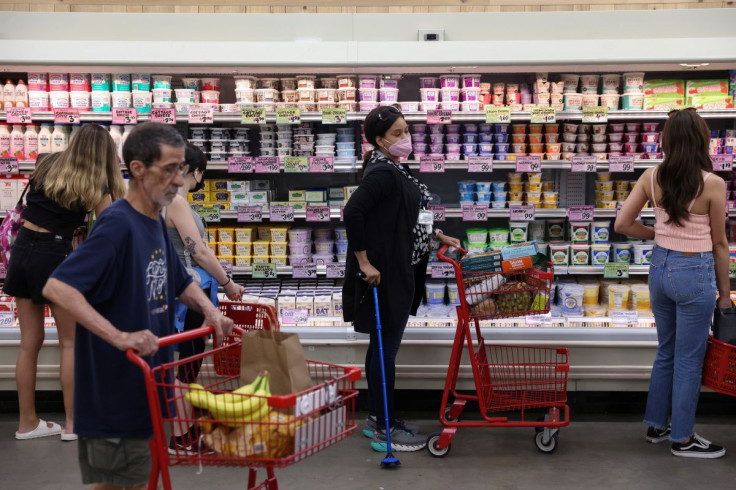Australia's Inflation Hits Lowest Point Since March Amid 5% Drop In Electricity Prices

Australia's inflation fell to its lowest since March due to a 5% drop in electricity prices from government rebates. Meanwhile, consumer prices rose 3.5% in the past 12 months to July, slightly more than the predicted 3.4%, indicating a delay in interest rate cuts.
"CPI inflation is often impacted by items with volatile price changes like in Automotive fuel, Fruit and vegetables, and Holiday travel," Leigh Merrington, ABS acting head of prices statistics
— Australian Bureau of Statistics (@ABSStats) August 28, 2024
Visit https://t.co/d0T7vIWPdv pic.twitter.com/3HH6MLIvMt
Price increase in consumer products like fruits, vegetables and alcohol has prompted the Australian Council of Trade Unions (ACTU) to demand a cut in supermarket prices. The ACTU quoted the high profit margins of the two supermarket chains -- Coles posting a AU$1.1 billion profit on Tuesday and Woolworths AU$1.7 billion on Wednesday -- to highlight their demand for a price drop, The Guardian reported.
"[They] post megaprofits while working people struggle," said the ACTU assistant secretary, Joseph Mitchell. "It's time they do their part and drop prices."
With the government providing rebates in Western Australia, Queensland and Tasmania along with state subsidies, energy prices returned to the level they were at a year ago.
In July, energy prices dropped to 6.4%, compared to the usual 0.9% rise, and as the government announced rebates across the country, further drop in prices were expected.
Meanwhile, economists countered Treasurer Jim Chalmers' claim that the government rebates were bringing down inflation.
"Disinflation broadened in July and was not solely due to government rebates," Commonwealth Bank economist Stephen Wu said.
The downward trend rate was aligned with Reserve Bank of Australia's (RBA) prediction that inflation will fall within 3.0% and the trimmed mean to 3.5%, pointed out AMP's chief economist, Shane Oliver.
However, the price drop should not be enough for the RBA to announce a rollback on interest rates. Earlier in August, RBA governor Michele Bullock had warned that the pace of inflation drop was too slow for the central bank to cut rates by the end of the year.
Moody's Analytics economist Harry Murphy Cruise said the July inflation improvement was largely due to the rebates artificially lowering the cost of electricity, according to the AAP report.
"While that makes the headline inflation figure look a whole lot better, prices are ultimately unchanged — and governments are on the hook to pick up the tab," Cruise said.
Shadow Treasurer Angus Taylor called it Labor's manipulation of the headline inflation.
"This is a cost of living con job from a Labor government only putting Band-Aids on bullet wounds," he said.
Housing at 4%, alcohol and tobacco at 7.2%, transport at 3.4% and food and non-alcoholic beverages at 3.8% were the biggest contributors to the annual inflation rate.
© Copyright 2026 IBTimes AU. All rights reserved.





















